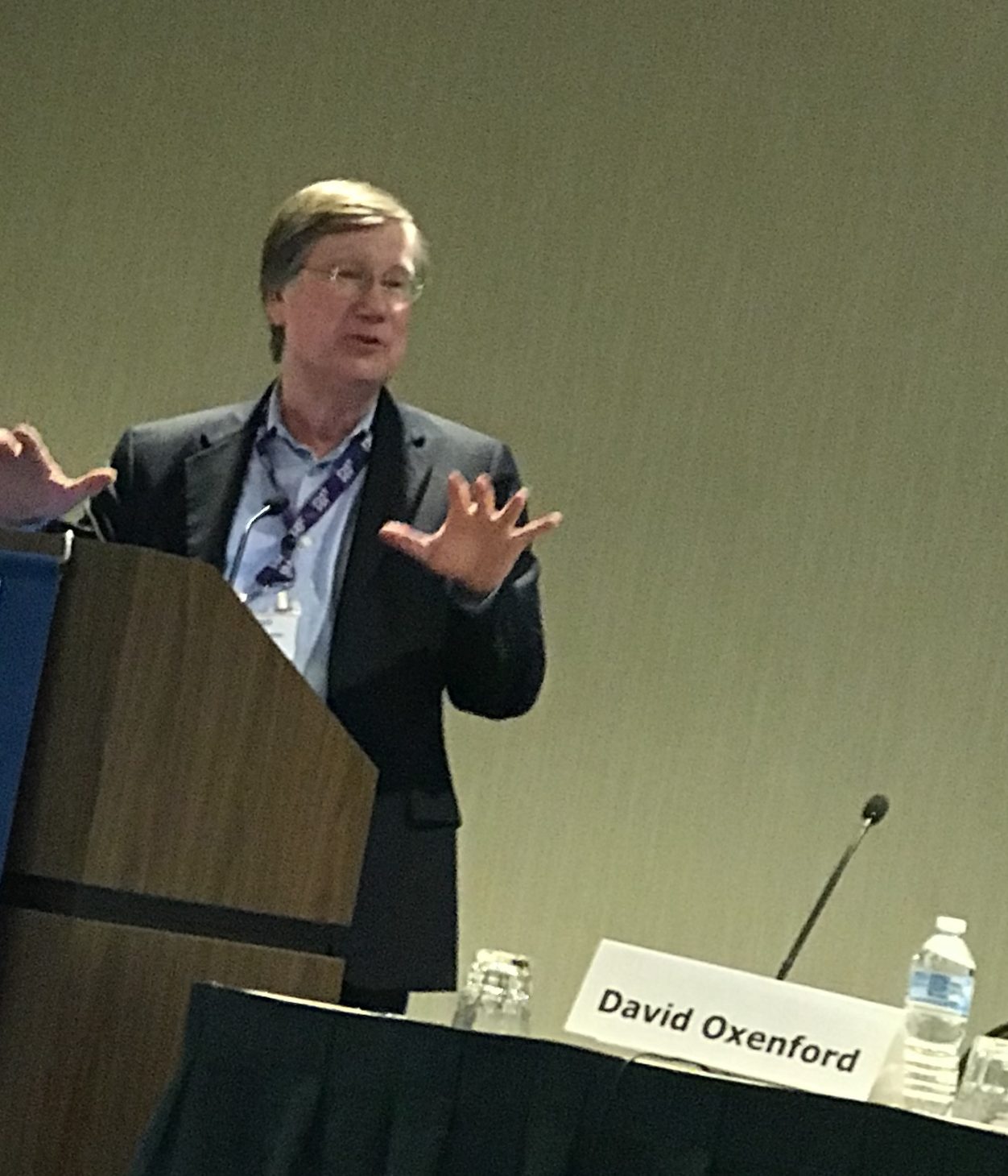This week, the FCC designated for hearing the license renewal applications for a number of Alabama radio stations.
Why? Who better than noted Wilkinson Barker Knauer attorney David Oxenford to explain the situation.
Simply put, the stations owner has been convicted of felony ethics violations stemming from misconduct while he served in the Alabama legislature.
The hearing will determine the effect of those felony convictions on the character of the licensee to hold a broadcast license, Oxenford explains.
“The Communications Act requires that a broadcast licensee (and its owners) must have the requisite character to operate the station,” he says in a newly penned blog post at BroadcastLawBlog.com. “Character is reviewed whenever a party seeks to acquire a broadcast license, including when they file for the renewal of that license. In egregious circumstances, the FCC can even move to revoke the licenses held by a licensee outside of the license renewal process. Even the sale of a license by a party without the required character qualifications may be prohibited by the FCC, as the Commission does not want to see a wrongdoer profit from the disposition of what is seen as a government asset – the FCC license.”
Character has been defined by the FCC through numerous policy statements issued periodically over the last 50 years, and has been further refined by precedents established in individual cases. “This week’s case gives us the opportunity to look at what conduct the FCC considers in assessing the character of any broadcast application, and the factors that are reviewed in determining the impact of bad conduct on the ability of the applicant to hold an FCC license,” Oxenford notes.
While not at issue in this week’s case, perhaps the most common type of character issue that comes before the FCC relates to conduct before the agency itself. Oxenford says, “Misrepresentations or ‘lack of candor’ before the agency are serious offenses, as the FCC feels that it must be able to rely on the truthfulness of representations made to it by its licensees. As the FCC cannot verify every factual statement made in every application or other filing made before the agency, it considers it a serious offense if an applicant makes untrue or misleading statements to the Commission in any of its submissions to the agency.”
Similarly, he adds, compliance with the FCC’s own rules can be considered in a character context. “While the FCC generally recognizes that licensees are not perfect and can err in their compliance, a pattern of regulatory noncompliance can indicate that the applicant does not have the requisite character to be a licensee. In most cases, forfeitures will be imposed for simple violations of FCC rules, but more serious, repeated violations can lead to stiffer penalties or even the loss of a license.
Harder character questions are raised, as in this week’s case, by misconduct that occurs outside the FCC’s jurisdiction.
“In the late 1980s and early 1990s, the FCC arrived at a standard that is generally still used today, where the Commission considers not only broadcast and other media-related legal violations, but also felonies of any sort,” Oxenford says. “The Commission’s reasoning, as reiterated in this week’s decision, is that any serious crimes could indicate that an applicant cannot be trusted to follow FCC rules.”
FCC forms require applicants to list FCC character issues found in other cases, as well as all felonies, all media-related antitrust violations, fraudulent statements to another governmental unit, and any finding of discrimination. These legal matters need to be reported not just for the applicants, but for other businesses or activities in which the applicant’s principals have interests, Oxenford notes.
“In most cases, the FCC will not itself make the determination as to whether an individual violated some law or regulation, but instead will consider misconduct when it has been adjudicated by a court or other government agency,” he points out. “However, the FCC has left itself room to look at other egregious misconduct even if that conduct has not already been finally determined by a court or government tribunal.”
But in any case, whether it be a felony or any other misconduct, the fact that the conduct occurred does not in and of itself mean that someone is unfit to be a broadcast licensee.
“Instead, the FCC needs to weigh multiple factors to determine if the conduct is disqualifying,” Oxenford says. “The FCC will weigh factors including the willfulness of the conduct, the frequency of the conduct that led to the misconduct findings, how current the findings are, how serious the wrongdoing was, whether individuals with management authority over the stations were involved in the misconduct, whether there were efforts to rectify any wrongs that were done, the history of FCC compliance of the applicant, and whether there has been a rehabilitation of the applicant. This is a balancing process. An individual who was involved in some minor crime long ago, served his or her time, and has led a productive post-conviction career might not be disqualified from broadcast ownership. But other more recent crimes, or those that are particularly shocking to the conscience, can lead to a stigma for much longer periods.”
All of these factors are weighed through an administrative hearing, which as of November 2020 will largely be a paper-based process, rather than the previous approach of a live hearing before an FCC Administrative Law Judge.
“As with any area of FCC law, this article cannot cover the many nuances of the Commission’s policies in assessing the character of an applicant coming before it,” Oxenford concludes. “Suffice it to say that if an applicant, or any principal in an applicant, has had any issues in dealing with the FCC or any other legal trouble in any business or activity in which they are involved, consult counsel, as particular facts can make big differences in the outcome. Even in the most serious cases, there may be circumstances where a station can be sold or otherwise disposed of in a way to avoid a total loss that would arise from a lost license. It is a complex area that needs to be navigated carefully.”
MORE FROM THE RBR+TVBR ARCHIVES:





